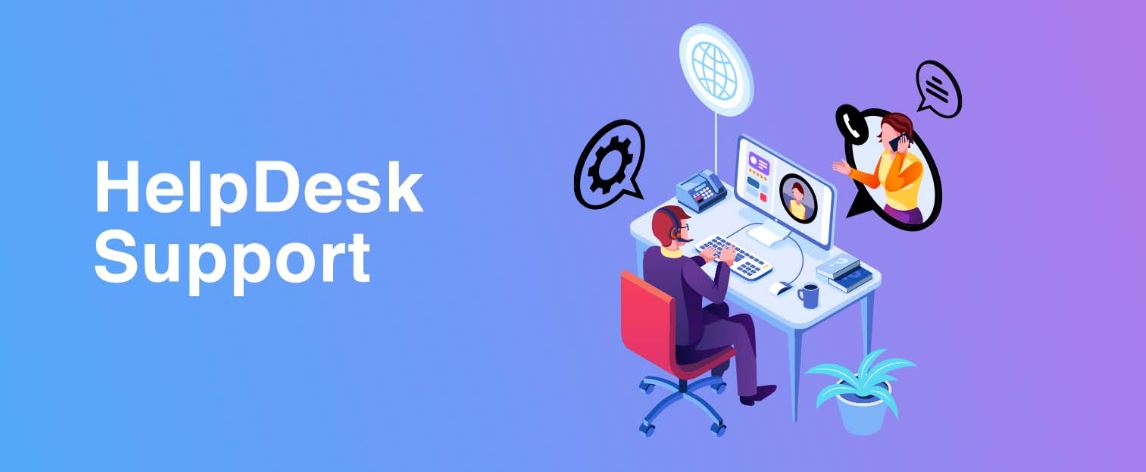4 Most Common Help Desk Problems and Solutions
In today’s technology-driven world, businesses heavily rely on efficient help desk support services to ensure smooth operations and address technical issues promptly. However, even the most well-equipped help desks encounter certain recurring problems.
In this article, we will explore the four most common help desk problems and their practical solutions, shedding light on how managed IT services can alleviate these challenges.
Long Wait Times:
One of the most frustrating issues faced by users is enduring long wait times when seeking assistance from the help desk. This problem often arises due to limited staffing or high call volumes. To tackle this, implementing a ticketing system can help prioritize requests and assign appropriate resources. Additionally, establishing a comprehensive self-help knowledge base empowers users to resolve minor issues independently, reducing the need for immediate support.
Lack of Proper Communication:
Effective communication lies at the heart of successful help desk operations. Many users experience frustration when they are unable to clearly articulate their technical problems or if the support staff fails to understand the issue. Addressing this challenge requires investing in well-trained and empathetic support personnel who can communicate complex technical concepts in easy-to-understand language. Encouraging active listening and employing remote support tools can also enhance communication between users and help desk technicians.
Repetitive Issues:
Dealing with repetitive issues not only wastes valuable time but also indicates underlying problems within the IT infrastructure. By analyzing patterns and trends in reported issues, help desk teams can identify root causes and implement proactive measures to prevent recurring problems. Conducting regular training sessions for end-users can also equip them with the necessary knowledge to troubleshoot common issues, reducing the frequency of repetitive help desk tickets.
Insufficient Knowledge Base:
A robust knowledge base is an invaluable asset for both help desk technicians and end-users. Unfortunately, many help desks struggle with maintaining an updated and comprehensive knowledge base. By investing in a centralized knowledge management system, help desk support services can ensure that technicians have access to the latest troubleshooting techniques and solutions. Furthermore, encouraging users to provide feedback and suggestions for improving the knowledge base fosters a collaborative environment and enhances the overall effectiveness of the help desk.
Conclusion:
The four common help desk problems discussed in this article highlight the challenges faced by businesses when it comes to providing efficient IT support. However, by embracing managed IT services and implementing the suggested solutions, organizations can overcome these hurdles. By focusing on improving communication, reducing wait times, addressing repetitive issues, and building a comprehensive knowledge base, help desk support services can enhance user satisfaction, productivity, and ultimately contribute to the overall success of the business. Remember, the key lies in continuous improvement, adapting to evolving technology, and placing the human touch at the core of your help desk operations.



